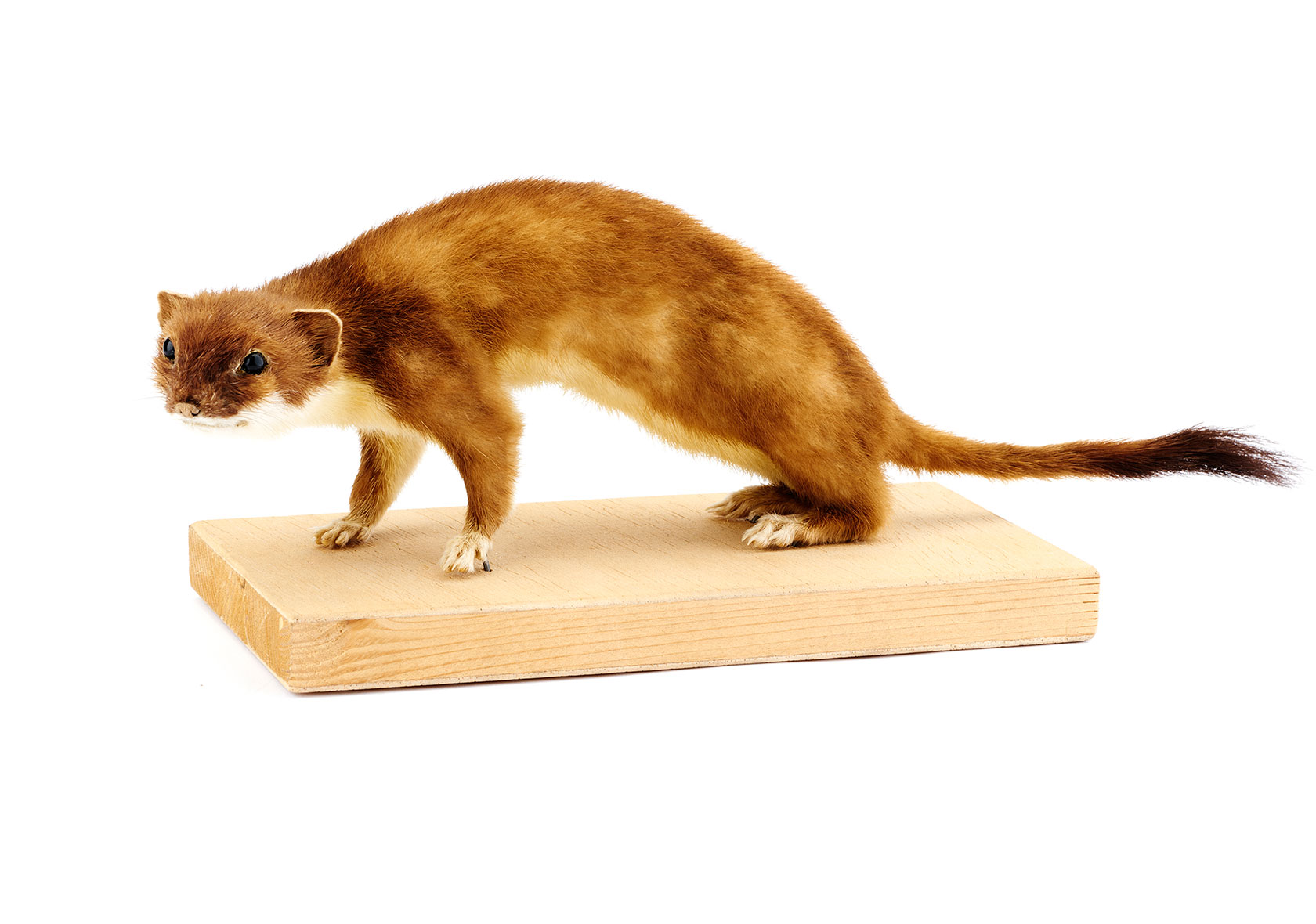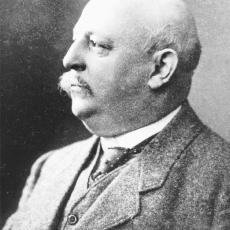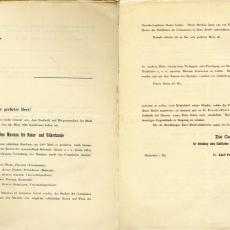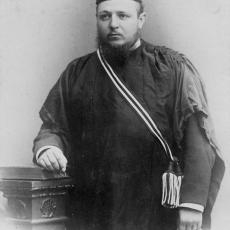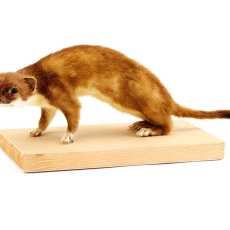Insights into the History of the Collection
Prof. Dr. Wilhelm Adolf Fritze
17.12.1860 – 27.7.1927
Born in Bremen, Fritze studied zoology in Würzburg and Strasbourg. Subsequent studies took him to Heidelberg and Freiburg. He received his doctorate in zoology in In 1888/89 under August Weismann in Freiburg. It was here that he also met Dr. Ischikawa, who invited him to Japan in 1890. Fritze used the two-year-long trip to Japan as a basis for his post-doctoral research (habilitation) into the fauna of the Ryukyu Islands in southwestern Japan. He is considered to be one of the first European research scientists in this region.
He was employed at the University of Freiburg until 1897 as a privatdozent. This was followed by a short spell at the Natural History Museum in Stuttgart and at the University of Strasbourg's Zoological Institute. In 1901, Fritze moved to the Provinzial Museum (now the Lower Saxony State Museum) in Hanover as directorial assistant, where he subsequently assumed the management of the zoological/natural history department in 1909. He was appointed honorary chairman of the Zoological Gardens in Hanover in 1910 and professor in 1912. Prof. Fritze died on 27 July 1927 in Hanover.
Adolf Fritze and the Museum
Adolf Fritze was a central figure in the founding of the museum. On 19 January 1895, he wrote the Promemoria detailing the need for a municipal collection for natural history and ethnology. In this memorandum, he criticised the fact that the municipal collections were scattered across the city and not open to the public. He called for a central museum featuring natural history and ethnology. According to Fritze's proposals, the required artefacts for the new museum should, as far as possible, be procured through exchange and donations. His aim was to appeal in particular to people associated with Freiburg domiciled in other countries. The roll of honour is a direct result of his efforts.
On 7 August 1895, the Commission zur Gründung eines Museums für Natur- und Völkerkunde (Commission for the Founding of a Natural History and Ethnology Museum) was initiated. It comprised Dr. Ficke as chairman, as well as the city councillors August Gruber, Ernst Pfister and Prof. Gustav Steinmann. At the close of 1895, Fritze assumed the honorary directorship of the new Museum für Natur- und Völkerkunde for a period of one year.
Adolf Fritze Donation
As one of the founders of the museum and the first honorary head, Adolf Fritze donated a natural history collection of a total of twenty-nine native animals in 1899, including nine mammals, eight birds and six boxes with beetles. Even after he had left Freiburg, he continued to support the museum. His subsequent donations also included a small number of ethnological objects, such as a Sinhalese book made from palm leaves, two Japanese picture books, Canadian moccasins, stone axes and a stone spearhead. However, only one box of Japanese decorative leather jewellery strips remains in the Ethnological Collection today, the other objects have been exchanged with other museums over the years.

